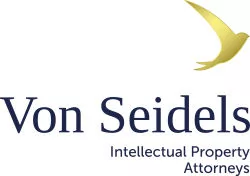Draft Western Cape Liquor Amendment Bill
The Draft Western Cape Liquor Amendment Bill was recently published for public comment. The bill seeks to address a number of practical challenges currently being experienced by the Western Cape Liquor Authority in implementing the principal Western Cape Liquor Act (2008). These amendments will enable the Liquor Authority to perform its core function and hopefully streamline the process of obtaining a liquor licence in the Province. Eleven clauses of the Act are being revised. The most notable amendments affecting the public are the following:
Temporary and Event Licences
Previously, temporary liquor licences granted for a specific event were limited to certain types of events such as exhibitions, concerts and sporting events. It will now be possible to obtain a temporary liquor licence for any event at which alcohol will be sold by way of a cash bar, including private functions and weddings.
Petrol Stations
The absolute prohibition against liquor licences being granted for premises on which a petrol station is situated, will be removed. The proximity of a petrol station to the licensed premises will now be considered as one of several factors taken into account when applications for new liquor licences are considered.
No 150 Litre Limit
The draft amendment bill no longer requires a person to obtain written permission from the Liquor Authority to be in possession of more than 150 litres of alcohol. A person may now have any amount of liquor in his or her possession, as long as it is reasonably required by that individual, their family or guests.
The 150 litre limit has been criticised by police who argue that it often hampers the shutting down of illegal outlets such as shebeens. The 150 litre limit amounts to about five hundred 330ml bottles of beer or two hundred 750ml bottle of wines, and owners of illegal outlets had learnt to store less than this amount of alcohol on their premises. Deputy provincial commissioner, Major-General Peter Jacobs, testified at the Khayelitsha Commission of Inquiry that while police still confiscated the alcohol and whilst there were other provisions under which an illegal outlet could be closed, it had become difficult to secure a conviction and charges were regularly withdrawn if less than 150 litres of alcohol had been found on the premises.
The removal of this limit also brings some relief to bona fide wine collectors who store more than 150 litres.
Powers of the SAP
The proposed amendments will significantly extend the powers of municipal police officers whom will now be able to close illegal outlets. Currently, only designated liquor officers and police officers with the rank of inspector and above are allowed to do this. Furthermore, the police will be allowed to inspect licenced premises without a warrant if the purpose is to ensure compliance with the Liquor Act or licence conditions and will be entitled to close down businesses for an undetermined period of time for various reasons. Lastly, the police and a municipality will be allowed to sell any confiscated liquor at a public auction.
Following an initial round of public hearings, the draft amendment bill has now been sent to the Provincial Parliament and is likely to undergo another round of public comment. Minister of Finance, Economic Development and Tourism, Alan Winde, has encouraged communities and business to "contribute their insights to this amendment process" and interested parties should ask to be informed of future calls for comment.
Copies of the draft Western Liquor Amendment Bill, 2014 are available at: www.westerncape.gov.za/dept/edat
By Linde Steyn (under the supervision of Christine Strutt)
The content of this article is intended to provide a general guide to the subject matter. Specialist advice should be sought about your specific circumstances.


